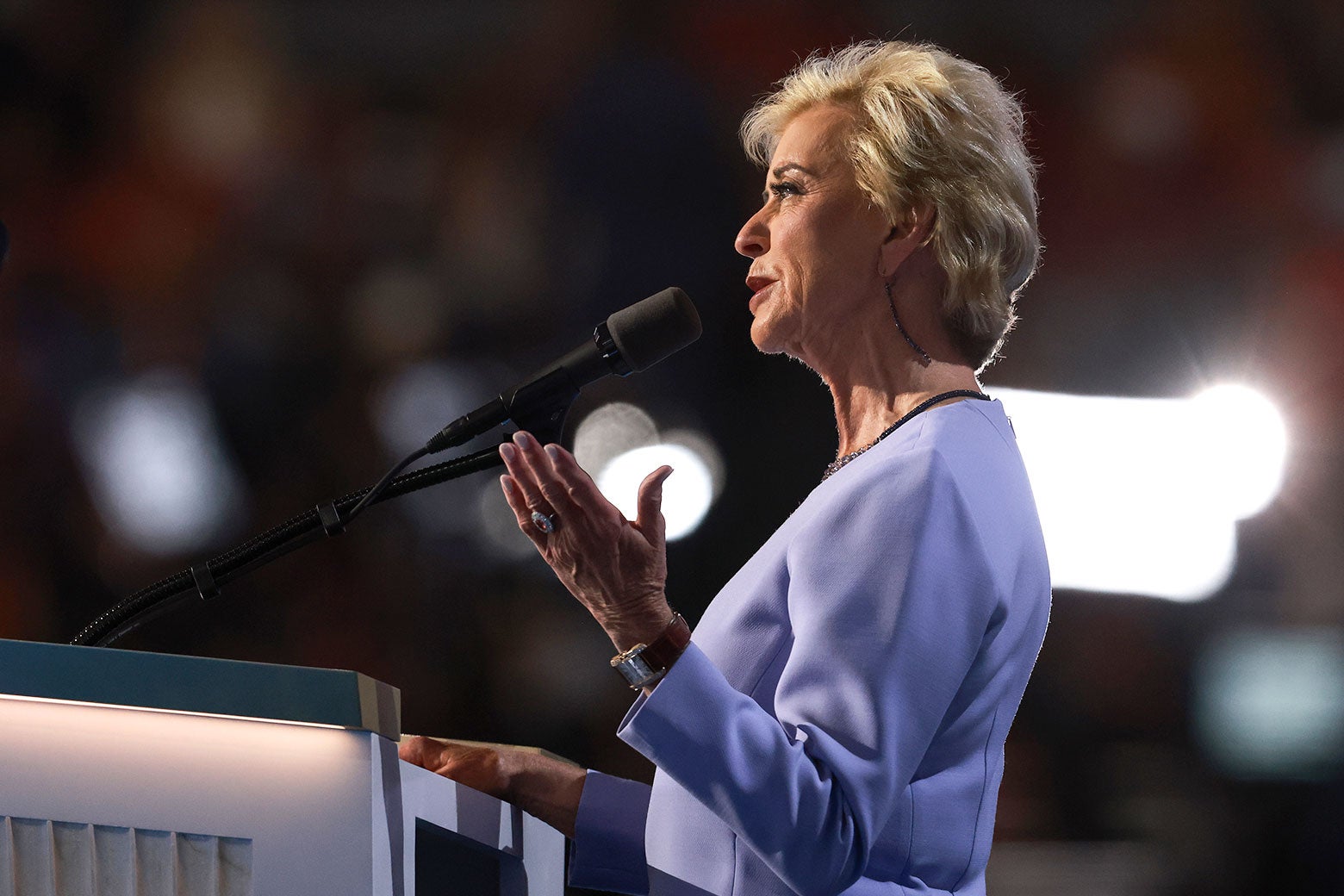Entertainment
Trump’s WWE Ally Has a Controversial Vision for American Schools.

Donald Trump has announced Linda McMahon as his pick for the Department of Education, raising questions about how this choice will shape U.S. schools. If her appointment moves forward, it seems clear that her vision aligns with that of many Trump supporters who wish to steer education back to an idealized version of the Founding Fathers’ principles. However, this nostalgic view of education might not unfold as they expect, potentially leading to troubling outcomes for everyone, including those who support Trump.
In the previous Trump administration, McMahon served as the head of the Small Business Administration, where she championed “apprenticeships” as crucial for education reform. Her philosophy, deeply rooted in workforce development, draws from her experience running World Wrestling Entertainment. As an “outsider” in the education field, McMahon might prioritize shifting funds from public education toward private institutions, aiming to connect education more closely to job readiness. While this might sound appealing to some, the reality of how education functioned in the early years of America reveals significant disparities and challenges that were often overlooked.
Historically, public schools in America were sparse and often inadequate, especially between the Revolution and the Civil War. Many children were more often found laboring than learning, and those from less privileged backgrounds faced particularly grim prospects. In urban areas, like 1820s New York City, minister Peter Williams noted that the educational needs of Black children were woefully unmet, with only a fraction enrolled in school despite a growing population. White children weren’t faring much better; reports indicated a staggering disconnect between the number of children and the available educational facilities.
The case of a young girl from rural Georgia in 1831 encapsulates the struggles faced by children at the time. She lamented her inability to get a proper education due to limited access, conscious of the fact that without significant learning opportunities, her dreams of becoming a schoolteacher were dashed. This was not an isolated experience; children across the nation often found themselves prioritizing labor over education.
Apprenticeships, while sometimes a means to success, were fraught with inequality. It was often the wealthier families who could afford to secure advantageous apprenticeships for their children, while less fortunate youth, often from minority backgrounds, were relegated to servitude with little hope for advancement. Over the years, protections for child workers have improved significantly, but the specter of exploitation remains, particularly for vulnerable communities.
With McMahon potentially at the helm of education policy, there’s concern that the shadows of the past might resurface, with employers gaining undue influence over how children are educated. Her promotion of initiatives that paraphrase the America First Policy Institute could lead to a fragmentation of public education and create a climate where economically disadvantaged families once again find themselves without adequate schooling options.
In states like Texas, where Governor Greg Abbott has pushed for a controversial voucher program, the lessons from history come rushing back. Many Republican leaders are rejecting these privatization strategies, realizing they may endanger educational access in rural areas. If funding shifts away from public schools, it would risk creating “education deserts,” where families are left with either unaffordable private school choices or no options at all.
Importantly, history has taught us two essential truths about education: sound public funding is critical to offering educational access to all and that relying on employers to serve as educators can deepen socio-economic divides. A McMahon-led Department of Education risks repeating past mistakes, jeopardizing the educational landscape for countless children across the country. The implications of her policies should concern all citizens, regardless of political affiliation, as they threaten to unravel the progress made over generations in public education.
